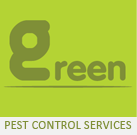Introduction
Pests can be a homeowner’s worst nightmare. Whether it’s ants invading your kitchen, termites damaging your wooden structures, or rodents scurrying through your attic, pests can not only be a nuisance but also pose health risks and cause significant damage to your property. That’s where pest control comes into play. In this comprehensive guide, we’ll explore the world of pest control, from prevention to treatment, and help you keep your home pest-free.
Section 1: Understanding Common Household Pests
Before you can effectively control pests, it’s crucial to understand the types of pests that might infest your home. Here are some common household pests:
1.1 Ants
Ants are social insects that often enter homes in search of food. They can quickly establish colonies and become a persistent problem.
1.2 Cockroaches
Cockroaches are not only unsightly but can also carry diseases. They are known to thrive in warm and humid environments.
1.3 Rodents
Mice and rats are notorious for chewing through walls, wires, and contaminating food. They are a common pest in many households.
1.4 Termites
Termites are silent destroyers, feeding on wood and causing extensive structural damage over time.
1.5 Bedbugs
Bedbugs feed on human blood and are known for their itchy bites. They are notoriously difficult to eradicate once established.
Section 2: Preventative Measures
The best way to deal with pests is to prevent them from entering your home in the first place. Here are some preventative measures to consider:
2.1 Maintain Cleanliness
Regular cleaning and proper food storage can help deter many pests.
2.2 Seal Entry Points
Seal cracks, gaps, and openings in your home’s exterior to prevent pests from getting inside.
2.3 Remove Standing Water
Pests, like mosquitoes, thrive in standing water. Ensure your home’s drainage is working correctly.
2.4 Keep a Tidy Yard
Trim bushes and trees away from your home to prevent pests from using them as a bridge to your house.
Section 3: Natural and DIY Pest Control
If you’re dealing with a minor pest problem, you might want to try some natural and DIY solutions before resorting to chemical treatments.
3.1 Homemade Traps
Create homemade traps using simple ingredients like vinegar, sugar, or dish soap.
3.2 Essential Oils
Certain essential oils, like peppermint and lavender, can act as natural repellents for some pests.
3.3 Biological Controls
Consider introducing natural predators or beneficial insects to your garden to control pest populations.
Section 4: Professional Pest Control
For more severe infestations or pests that pose health risks, it’s best to hire a professional pest control service. They have the expertise, tools, and chemicals necessary to deal with the problem effectively and safely.
4.1 Pest Inspection
A professional will conduct a thorough inspection of your property to identify the type and extent of the infestation.
4.2 Treatment Plan
Based on the inspection, they will create a customized treatment plan using appropriate methods and products.
4.3 Follow-Up
Regular follow-up visits may be necessary to ensure the infestation is fully eradicated and to prevent future problems.
Section 5: Eco-Friendly Pest Control
If you’re concerned about the environmental impact of pest control, there are eco-friendly options available. These methods prioritize minimal harm to non-target species and the ecosystem.
5.1 Integrated Pest Management (IPM)
IPM focuses on using a combination of methods, such as biological controls and habitat modification, to manage pests effectively with minimal chemical intervention.
5.2 Natural Predators
Encouraging natural predators like birds or beneficial insects can help control pest populations without the use of chemicals.
Conclusion
Pest control is an essential aspect of maintaining a healthy and comfortable home. By understanding the types of pests that can infest your property and implementing preventative measures, you can significantly reduce the likelihood of an infestation. If a pest problem does arise, consider natural remedies for minor issues and consult a professional for more severe cases. With the right approach, you can keep your home pest-free and protect your family’s well-being.
